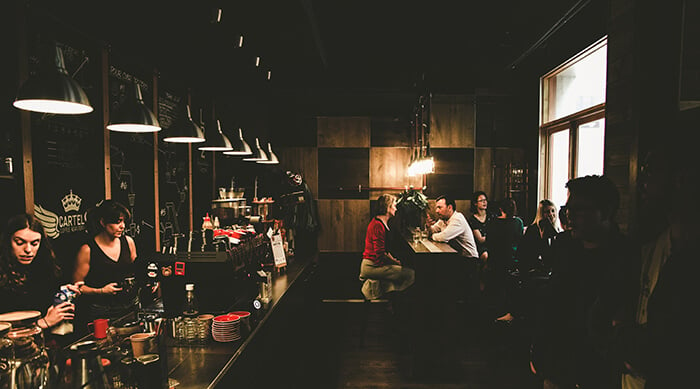If it’s been that kind of night and you’re looking for ways to sober up fast, let’s get one thing out of the way right off the bat: there is no scientifically proven way to speed up body processes when it comes to alcohol. The only hope you have when you’re drunk or hungover is time.
That doesn't stop people from embracing every common myth and miracle cure out there that promises a rapid alcohol detox. We get it — any port in a storm. Unfortunately, some of these “cures” can actually make you feel worse.
Let’s do some myth-busting on sobering up fast. Then we’ll cover how to handle a hangover and avoid getting too drunk next time.
Table of Contents
7 Alleged Sobering Up Strategies
So, is there a way to sober up fast?
7 Alleged Sobering Up Strategies
We’re calling these “alleged” strategies because we already gave you the bad news. Any level of alcohol consumption can mean feeling alcohol’s effects and a potential hangover the next day.
Some of these may help you treat your hangover, but they won’t do anything for how drunk you are in the moment.
1. Drinking Water
Alcohol can have a dehydrating effect. Water is great for hydration while you sip on alcoholic beverages. That’s about as far as it goes. Water won’t dilute anything that’s already in your system or reduce your blood alcohol level.
That said, it’s never a bad idea to have a glass of water in between each drink to slow down your drinking. It won’t affect the absorption of alcohol in your body, but it could keep you from drinking to excess.
2. Drinking Coffee
Coffee may give you a jolt of energy, but it won’t speed up the processes responsible for moving ethanol through your system. The same is true for any caffeine or drink boosts that make promises they can’t possibly keep.
Too much caffeine can be dehydrating, too, which definitely won’t help that morning after wine headache. If a cup of joe sounds really good after drinking too much, go for it. Just make sure to supplement with plenty of water to keep dehydration at bay until you’re 100% sober.
3. Eating
It’s a great idea to eat something before you start drinking alcohol so that you’re not drinking on an empty stomach. Shoot for complex carbs, healthy fats, and protein. You’ll slow down the absorption of alcohol that way and potentially reduce your risk of a bad hangover.
There really aren’t any foods that sober you up fast, though. Snacking on salty treats or chowing down on a greasy meal after the fact won’t do much good. In fact, all that grease and fat could irritate your stomach further and cause some uncomfortable bathroom escapades.
4. A Cold Shower
Cold showers are a popular sober-up trick in movies and TV shows, but they won’t do much other than perk you up in the short-term. You’ll still be just as drunk after you towel off as when you got into that cold shower.
We’d generally caution against any showers if you’re dealing with alcohol intoxication, by the way. You could slip and hurt yourself.
5. Sweating It Out
Your liver processes more than 90% of the alcohol in your system. For anyone who forgot basic anatomy, byproducts from your liver pass through your kidneys and bladder, and out of your body in urine. That means all that effort in the gym won’t help you sober up.
In fact, you’ll probably just feel worse. Working up a sweat will add to your fatigue and dehydration and make you feel more nauseated.
If you swear morning-after hot yoga sessions do wonders for your hangovers, we’re happy for you. It’s probably just a placebo, though. (So quit it with the peer pressure!)
6. Sleeping It Off
“Sleeping it off” isn’t really a thing, as much as “sleeping through it.” Time is the best way to get you back on your feet. It may feel like you achieved the impossible if you wake up feeling dandy after a night of drinking. It’s not magic, though. You’ve probably just let your body get the rest it needs to process the alcohol and recover.
Alcohol can impact sleep quality, so you may need to sleep longer than usual to feel rested.
How long does it take for alcohol to wear off? It can take up to 24 hours for alcohol effects to wear off, but most people start to feel better around the 8-hour mark.
It’s also important to note here that passing out after drinking can be dangerous. Excessive drinking can cause alcohol poisoning. It can slow your heart rate, dull key reflexes like your gag reflex, and cause seizures.
If you’re around someone who has been binge drinking, keep them upright or on their side and call 911 if you think they’re at risk of an alcohol overdose.
Need more long-term help? If you’re worried you or someone you know are at risk for an alcohol use disorder, seek out alcohol addiction centers or support groups:
- National Institute on Alcohol Abuse and Alcoholism (NIAAA) Alcohol Treatment Navigator
- Substance Abuse and Mental Health Services Administration or call 800-662-4357
- Alcoholics Anonymous
7. Throwing Up
As soon as that alcoholic drink hits your lips, it starts its journey toward your bloodstream. Throwing up doesn’t do anything for alcohol that’s already absorbed by the body. It won’t help you sober up, and throwing up regularly could damage your esophagus.
If you’re drunk and going to vomit anyway, it could help you feel better in the short-term — alcohol is toxic and your body knows it. However, you should never use self-induced vomiting to try to sober up.
So, is there a way to sober up fast?
There is no proven way to sober up fast. Time is your friend here. It’s unsafe to believe otherwise, especially if you’re trying to figure out how to sober up fast to drive. In that scenario, call a friend or a rideshare. Don’t put yourself at risk for getting pulled over for a DUI, or worse — drunk driving accounts for about a third of crash-related fatalities. Better safe than sorry.
Once you’re safely home, how much time you’ll need to sober up depends on your body.
How Your Body Processes Alcohol
Alcohol by definition is a depressant. Even in those without mental health concerns, it slows down bodily functions, including your metabolism. That can affect everything from your glucose metabolism to nutrient absorption.
Your body doesn’t digest alcohol like it does other things you consume. The alcohol has to metabolize, with a few stops along the way. Your bloodstream is first.
Heavy drinking in a short amount of time results in a higher blood alcohol content (BAC), or blood alcohol concentration, and more obvious side effects from alcohol. From there, alcohol impacts organs like your brain and the small intestine before making it to the liver.
Your liver does most of the heavy lifting when it comes to alcohol metabolism thanks to enzymes like alcohol dehydrogenase. Too much drinking over time doesn’t make your liver stronger, either. It can cause liver failure or conditions like fatty liver disease.
This metabolic process doesn’t work the same for everyone. Enzyme levels, hormonal fluctuations, and body mass all matter after any amount of alcohol intake. That’s why many women get drunk faster than men.
Medications, health conditions, how much you’ve had to drink, even whether you’ve been drinking on an empty stomach also matter.
What To Do Before Bed
What can I do to sober up overnight? To sober up overnight, get enough rest to give your body a chance to process the alcohol.
There is no quick fix for how to sober up fast before bed, but there are a few things you can do before you hit the hay to potentially reduce a bad hangover when you wake up.
- Drink a big glass of water. We keep talking about the dehydrating effects of alcohol use, but it really is the most common culprit behind bad hangover headaches and fatigue.
- Chug some electrolytes. If you know you’re going to throw up, electrolyte drinks like Gatorade or Pedialyte can help get you hydrated and feeling a little better.
- Eat a light snack. No, a slice of pepperoni pizza is not the best idea, no matter how good it sounds. If you’re feeling nauseous, a piece of toast can help settle an upset stomach.
- Take an anti-inflammatory for headache relief. Always take the recommended dose and avoid any over-the-counter pain relievers on an empty stomach.
- Do NOT mix alcohol with other medications like sleeping pills or antidepressants. If you’re worried about a prescription interacting with alcohol, talk to your healthcare provider.
Handling a Hangover
Waking up with a nasty hangover isn’t fun for anyone. While there aren’t any miracle hangover cures out there, there are ways to reduce the effects of those telltale signs of too much wine. We go into our favorite remedies in our guide to hangover relief, but here are a few simple tips:
- Hydrate with lots of water.
- Sip on tea or a little caffeine.
- Eat a light, nutritious breakfast.
- Try anti-inflammatories.
- Get plenty of rest.
From there, it’s really just a waiting game while the effects of alcohol work through your system.
How to Avoid Getting Drunk Next Time
Let’s say you’ve sort of learned your lesson with that last brutal hangover and want to be prepared for next time. There are ways to have a good time, keep things from getting out of control, and generally treat your body better.
- Don’t buy into hype. You know better now. There’s no easy fix for sobering up fast or tackling hangovers. Share that with friends who think otherwise.
- Eat something. Give your body a barrier to slow down alcohol absorption. Shoot for complex carbohydrates, protein, and healthy fats for a wellness boost while you’re at it.
- Drink less. The order you drink those drinks doesn’t matter but how much you drink does matter. Pay attention to standard drink sizes. A standard glass of wine is 5 oz, by the way.
- Skip the bubbles. Fizz in your drinks doesn’t matter nearly as much as quantity, but carbonation can get you feeling tipsy faster.
- Slow down. Sip, don’t chug. You need to give your body time to process the alcohol. Add a glass of water in between each drink if you’re having more than one.
- Avoid alcohol altogether. There are enough alcohol alternatives out there that it’s easy to say no alcohol if you don’t want to risk feeling like garbage the next day.
We’re not just talking about fun mocktails, either. If you love wine, dealcoholized wine like Surely non-alcoholic sparkling Brut is a great way to have it all. You’re still sipping on wine, since our products start out like conventional wine. You’re just cutting out the alcohol.
Try our bubbles in cans, if you want something that travels well!
Sources
- Coffee with High but Not Low Caffeine Content Augments Fluid and Electrolyte Excretion at Rest
- Interaction of carbohydrates with alcohol dehydrogenase: Effect on enzyme activity
- Alcohol in the body
- Overview: How Is Alcohol Metabolized by the Body?
- Low doses of alcohol substantially decrease glucose metabolism in the human brain




